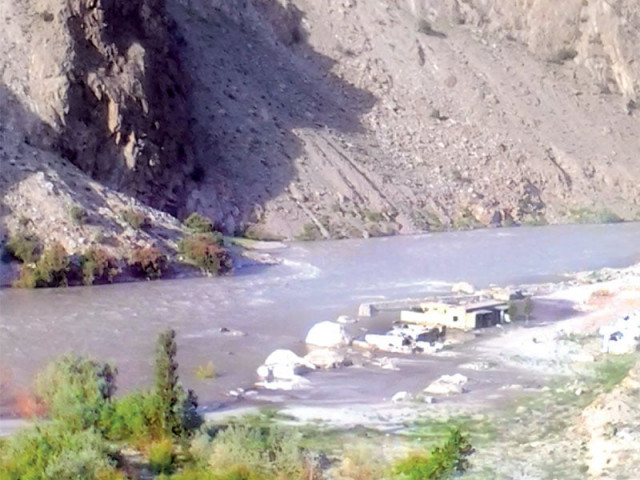Melting away
Pakistan is a frontline state in terms of the downside of climate change, and action cannot be deferred

In Gojal Valley, a number of nullahs have flooded the routes, adding to the misery of commuters. PHOTO: SHABBIR MIR/ EXPRESS
Large parts of the country are still recovering from the catastrophic floods of 2010, and a combination of glacier melt and monsoon rainfall — both inevitable in the natural cycle — means that flooding, perhaps, on a similar scale as 2010, must be expected in the future. The report of the journal must act as a wake-up call for those in the Meteorological Department. The density of weather reporting stations over 4,500m is approximately one-tenth of those below that elevation, and effort must urgently be made to improve that ratio. Melting glaciers affect not only water flow but vegetation as well, everything from dense mountain forests to the grain crops of the lowlands. Water is a political football in the region, and the Indus Waters Treaty is going to be severely tested in coming years as changes occur in the way the Indus river system works, potentially impacting the lives of billions of people in the subcontinent. This is not an issue that can be filed in the ‘pending’ tray. Climate change is a reality, and the argument about whether or not it is man made, irrelevant to those experiencing its worst effects. Pakistan is a frontline state in terms of the downside of climate change, and action cannot be deferred.
Published in The Express Tribune, July 1st, 2015.
Like Opinion & Editorial on Facebook, follow @ETOpEd on Twitter to receive all updates on all our daily pieces.














COMMENTS
Comments are moderated and generally will be posted if they are on-topic and not abusive.
For more information, please see our Comments FAQ